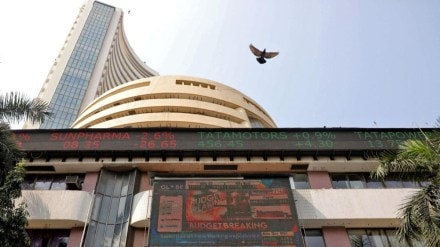Here is a big downgrade from Morgan Stanley. Given the Trump tariff uncertainties, the international brokerage house has now reduced its December 2025 Sensex target 12% lower, at 82,000. This implies 9% for the benchmark index from current levels. Morgan Stanley’s earlier target for the Sensex was 93,000.
According to the Morgan Stanley report, “risks to the growth outlook are skewed to the downside, mainly driven by an even deeper slowdown in global growth. Risks from global capital flows or volatility in currency could make it more challenging for policymakers to address growth risks.”
Morgan Stanley on India: Low beta enabling outperformance
The report stated that India’s low beta is helping the country to outperform significantly amid the global selloff. However, they do not rule out the possibility of the Index hitting “multi-month lows.”
“Continuing dovish actions from the RBI, stimulus through GST rate cuts, a trade deal with the US, and incoming growth data,” are some of the key positives for India. As per Morgan Stanley, “FY26 earnings estimate is down 13%, driven by the global situation. Domestic growth has support from improved government spending and a dovish RBI. India’s medium-term earnings cycle is still intact, in our view.”
Morgan Stanley on India: Stock-picking will be key
In their sector model portfolio, Morgan Stanley reduced the active positions from “an average of 180bps to 80bps to reflect a transition from a macro-driven market to one where stock-picking will be key to portfolios.”
Morgan Stanley is Overweight on financials, consumer cyclicals, and industrials; Underweight on energy, materials, utilities, and healthcare. The report added that they are “cutting back on our preference for small and mid-cap over large.”
Morgan Stanley on India: May end up with greater share of global trade
Referring specifically to the earnings outlook, Morgan Stanley believes that the “earnings cycle is about midway through its journey.” The key macro drivers of earnings are:
-An emerging private capex cycle
-The releveraging of corporate balance sheets,
-A robust banking system
-Improving terms of trade, from both a higher share in global trade and a lower share of oil in GDP
-The unfolding of a structural rise in discretionary consumption.
“These factors are slightly offset by likely consolidation on the fiscal front. According to Morgan Stanley, “The emerging global trade war could actually end up benefiting India with a greater share in global goods trade, although we are not incorporating that in our forecasts as yet.”
“Basically, trend earnings growth is still below nominal GDP growth, so the cycle has room to the upside,” they added.
